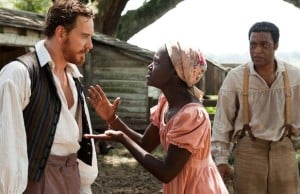With his new film 12 Years a Slave earning rave reviews and Oscar buzz, British filmmaker Steve McQueen--whose background is in fine art and experimental filmmaking--is poised to become a darling of this year’s awards season. Accolades are pouring in for McQueen’s Slave for its powerful depiction of slavery and the dynamo performances of its cast. But to me the most interesting thing about Slave is what it means in the larger context of McQueen’s feature work. His films--Hunger (2008), Shame (2011), and Slave (2013)--each depict visceral, sometimes brutal explorations of human embodiment. They are centrally concerned with the body: its power, its limits, and the complex manner in which it interacts with one’s will.
Login to read more
Sign in or create a free account to access Subscriber-only content.
Topics:
